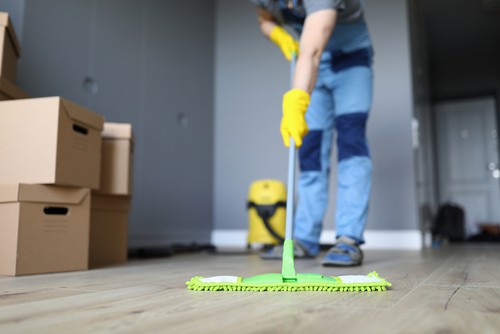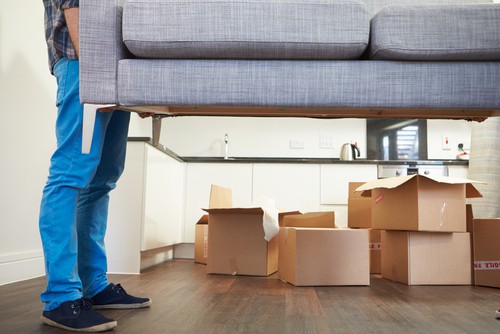
Who Should Pay For The End Of Rental Cleaning Service? End of rental cleaning services causes a lot of disputes among tenants and landlords. Therefore, it’s important to know the terms of the contracts signed allegedly by the two parties engaged in this transaction.
Without foresight about the contract, the dispute will have to linger on a little longer because miscommunication is amidst the conflict of who gets to pay for the end of rental cleaning services.
But fortunately, you will learn these important lessons about the end of rental cleaning services and who gets to pay for them at the end of the day.
If you’re curious, stay and read a few paragraphs so you’ll know your rights as a tenant or landlord in ensuring that harmonious leave will always occur in times of departure of one’s rental property. Read on – Who Should Pay For The End Of Rental Cleaning Service?
What is the end of rental cleaning service?

An end of rental cleaning service is an agreement between a tenant and a landlord at the beginning of the contract’s conception that stipulates a general cleaning by the former’s departure.
Meaning to say, when a tenant decides to leave for whatever reason, they get to clean the whole house to prepare for the next tenant who opts to stay at the same apartment.
Now, issues loom because said agreements are never ironed out as to who should pay for said services. Cleaning services are a lot more expensive than you might think, and on top of the rental fees that a landlord demands, a tenant must pay for additional services.
It’s no surprise that it’s a dispute most property owners and renters have towards the payments, and sorting it out really doesn’t need a lawyer present.
Below are the points that need addressing when it comes to the payment of the end of rental cleaning service.
During the tenancy period

If everyone was perfect, there is no need for a cleaning service to begin with, let alone anything else for that matter. However, nobody lives in a perfect world, and such service is even needed more when people aren’t always clean.
It is, in fact, a legal obligation for tenants to keep everything inside a property not their own to clean and organize the things and rooms that belong to the landlord.
It’s not only a legal duty but a moral obligation too. Ask yourself this: do I appreciate it if somebody messes up my things and rooms? Of course not. How would you feel if somebody does exactly what disruptive tenants do to other people’s homes?
Moreover, it is within the parameters of the landlord to address issues regarding their own home. These can range from regular inspections, notices for broken things, and addressing violations of the clause (e.g. having pets when stipulated that it’s not allowed).
There is a certain power owner have, and tenants must acknowledge and respect that power.
However, there are also rights tenants have in expecting the property to have acceptable amenities that project a safe environment. Without it, the insubordination of the owners can act as a liability. Hence, a cleaning service is more than welcome in times of the tenant’s leave.
By the end of the tenancy period

Is the tenant responsible for the end of cleaning service? This is a big question to ask because it is all in the matter of the terms of the contract. But before that, here are the prerequisites before tenancy even begins to quash any disputes of an uncleaned property before a tenant’s arrival and departure:
- Tenants and landlords should take photographs for points of evidence that the house was properly cleaned and maintained at both the arrival and departure time respectively.
- The landlord must provide a written list of inventory that is inside the property before the tenant’s arrival. Owners of said property must ensure that the list is in plenary and fully comprehensible. Any item left out of said list will get quashed and dismissed in later years should the tenant file for a contest.
- Any carpet cleanings, wallpapers and paint jobs done with the full cooperation and consent of the landlord should remain quashed in any dispute.
For instance, when the landlord complains of such installations and the tenant proves that the landlord consented to such action. Otherwise, it would not be a viable claim for complaint. Therefore, tenants don’t need to compensate for such claims.
In other words, the tenant is amenable to everything that’s within the clause of a residential tenancy. They have to pay for any damages and cleaning services that are required to maintain the house for the next occupant.
Is professional cleaning needed?

Everyone should expect cleaning when a tenant leaves a property. It’s only natural after someone leaves premises that it has to clean itself out for the next tenant to arrive. Would you rather have it uncleaned the moment you enter a new apartment?
A cleaning service is more than needed on all occasions of renting property, and it isn’t an excuse for a tenant not to pay for the said services after occupying it for many months or years.
Who Should Pay For The End Of Rental Cleaning Service? – Conclusion

The answer to the question of whoever should pay for the end of tenancy cleaning is obviously the tenant. How could a property owner be responsible for whatever goes inside an occupant’s own rental space when the mess and damages were not of their own?
It seems unfair to pin down all the costs on the owner, and the clauses in most tenancy agreements stipulate otherwise.
So, now that you learned the rights and responsibilities of a tenant, be sure to act responsibly in someone else’s home. And for landlords, don’t hesitate to claim what’s amenable in your rights to expect the best out of your own property.
Regardless, a house service scheme should more than do the job well, and always expect the cleaning costs to the bill to the tenants themselves. You can politely bid farewell to them and welcome new occupants with open arms, expecting the same decency and courtesy in due course.
